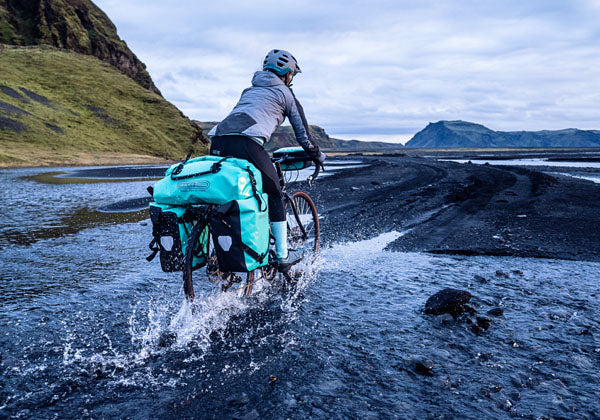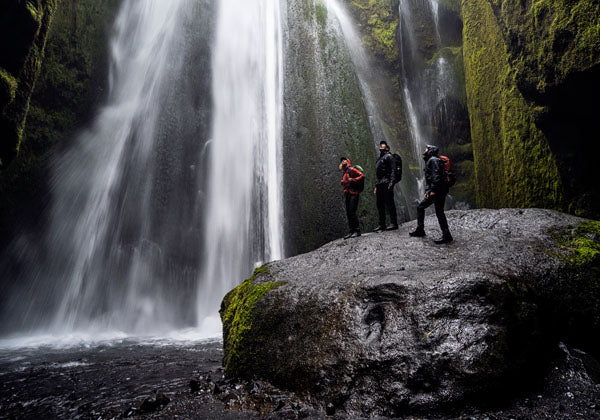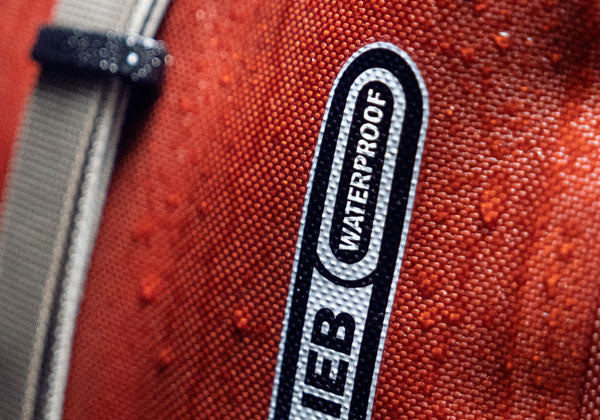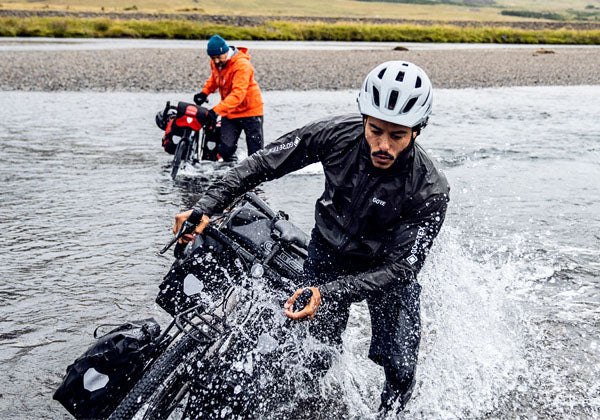WATERPROOF
What’s behind the legendary “Made in Germany” waterproof quality? We work exclusively with durable materials, advanced bonding methods and proven types of closures. For instance, we use high frequency welding to meet the highest of waterproofing specifications. This helps to distinguish ORTLIEB products as true outdoor champions compared to other merely sewn or glued products.
-
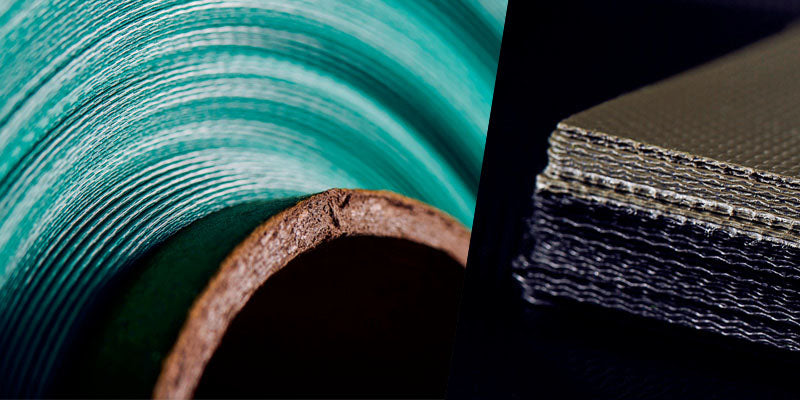
DURABLE MATERIALS
Our outstanding waterproof quality is based on selected materials that are developed for specific applications. Such materials include polyester, nylon and Cordura fabrics that are coated on one or both sides. If a fabric is coated on one side only, the opposite side will retain its textile look. If both sides of a fabric are coated, they will both have the familiar tarpaulin look. ORTLIEB's thermoplastic coatings meet extremely high waterproofing specifications, and are therefore far superior to most commercially available tent or backpack coatings.
-
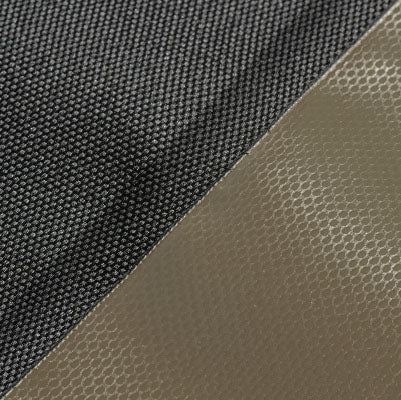
ADVANCED BONDING METHODS
The coated fabric used by ORTLIEB – including all welded seams – continues to resist leaking when exposed to a 100,000 mm column of water! This extreme degree of waterproofing is achieved using a process known as high frequency welding (HFW). Instead of applying heat from the outside, HFW involves the application of high frequency voltage to the objects that need to be welded. The voltage causes the molecules within the various materials to vibrate and, essentially, to generate heat. Softened from within by the heat, the materials are then bonded under high pressure, leaving the welded seam at least as strong as the surrounding material.
PROVEN CLOSURES
The third important factor for high waterproof and dustproof performance is the type of closures used. All of the closures used in ORTLIEB products are subjected to extensive environmental simulation testing. One common test parameter is referred to as ingress protection (IP). Originally used in the field of electrical engineering, IP ratings have become increasingly common in the outdoor recreation sector.
-
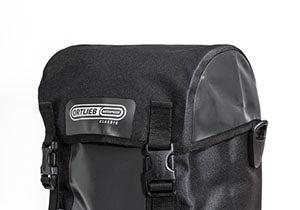
FLAP CLOSURE
Flap closures protect against dust and spray water from angles of up to 60° to 90°. Also available with a snow shield or an additional roll closure, the flap accomplishes its mission on every outing. Snap buckles and hooks are used to secure the flap’s closure. Products in the City Line are typically outfitted with magnetic fasteners to facilitate handling.
-
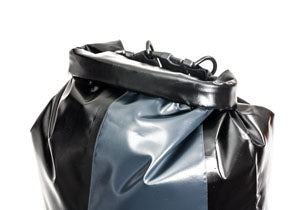
ROLL CLOSURE
The roll closure is a simple, effective and highly versatile means of keeping the inside separate from the outside. It is completely dustproof and protects the contents of ORTLIEB bags against spray water from all directions. The roll closure gains its stability and waterproof quality from the thin plastic stiffener bars sewn into the upper end of the material. The height or volume of packed bags can also be reduced by rolling up the material further. Those interested in maximum compactness are encouraged to select the model with the integrated valve.
-
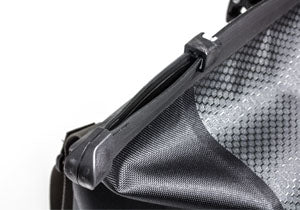
QUICK-SEAL-CLOSURE
The Quick Seal Closure allows you to quickly open and close your ORTLIEB bag by simply moving a slider along two flexible plastic profiles. The closure reliably protects the inside of the bag against dust and spray water from all directions. Ideal for daily use!
Advice: The Quick Seal closure may not work properly at temperatures of less than -5°C/23°F..
-
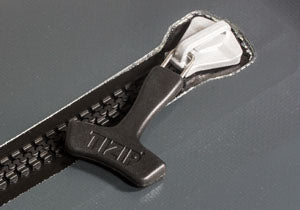
WATERPROOF ZIPPER
TIZIP zippers reliably prevent water and dust from entering your ORTLIEB bags. The inside of the bags will remain dry when submerged under 1 meter of water for a period of 30 minutes. The waterproof and dustproof design leads to a slightly greater degree of friction when opening and closing the bag.
-
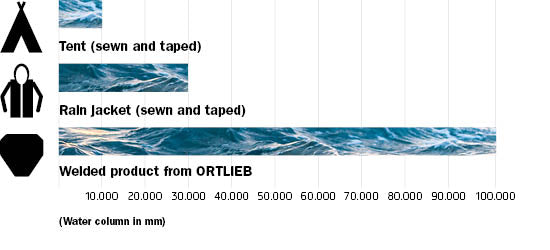
The hydrostatic head: ORTLIEB vs. other waterproof products
-
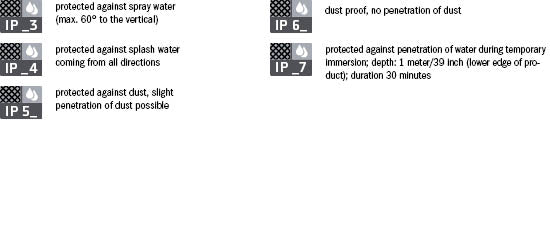
The IP protection classes of ORTLIEB bags











